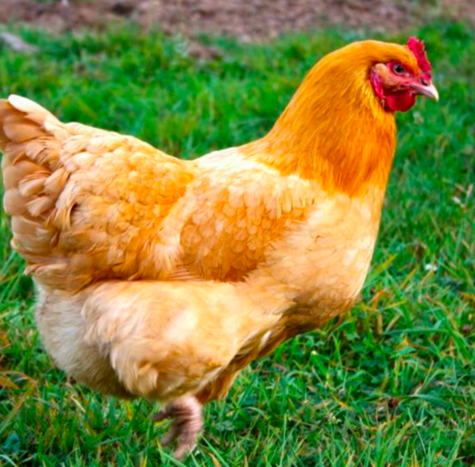
For Backyard Chickens in Whispering Pines

 Maxine K. signed
just now
Maxine K. signed
just now  Adam B. signed
just now
Adam B. signed
just now 
We, the undersigned residents of the Village of Whispering Pines request that the ordinance(s) of the village be amended to allow the keeping of backyard poultry in residential zones within the village.
We make this request because we sincerely believe that backyard poultry keeping will be beneficial to the citizenry of the village in the following ways:
1. Poultry eat insects and weeds and also act to till garden areas while providing a natural fertilizer in the form of organic manure. (Chickens are often used as a pest control measure.)
2. The sandy soil in our community requires the addition of large amounts of organic amendments in order to produce healthy plants with an efficient yield of fruits and vegetables. Purchasing such amendments from a garden center is quite costly, thus reducing gardening efforts among citizens and the hindering the success of backyard gardeners. Poultry manure is an age-old organic fertilizer that is very cost effective for those keeping small backyard flocks.
3. In addition, citizens concerned about healthful foods know that nothing toxic or harmful was fed to their personal poultry and that the manure is safe for their gardens.
4. The keeping of backyard poultry can reduce local use of pesticides and inorganic fertilizers and the associated pollution from such products in storm water run-off into our precious lakes.
5. Poultry provide a sustainable food source (daily eggs) that can be more flavorful and nutritious than those produced in a commercial eggery.
6. Poultry are natural recyclers. Being omnivores, they can eat table scraps as well as insects and weeds and turn out both food and fertilizer.
7. In the event of a weather emergency (or zombie apocalypse, lol!), many areas could see significantly reduced supplies of food, water and fuel for village residents could be interrupted. As a prudent practice, it behooves village residents to be as independent as possible with respect to food supplies. Growing a garden, preserving one’s own food and having a good source of protein (poultry eggs) would enhance the personal sustainability of Whispering Pines residents, and would therefore enhance the security of our community in the event of a natural disaster.
8. Backyard poultry are outstanding pets. They are easy to care for. They provide educational opportunities to teach children where food comes from and how to be responsible pet owners. Watching poultry and their relationships among one another is very entertaining.
9. It has been found that communities that allow small flocks of chickens that it actually increases property values.
As with any request for an ordinance change, questions regarding the health, safety, and welfare of the citizenry must be addressed. Listed below are the most common concerns brought up when discussing backyard poultry in residential areas:
1. Noise—Contrary to popular belief, most poultry are not loud. Being social animals, they like to “talk” to one another. Hens usually cackle at a volume of 20-40 decibels, which is about the same volume as conversational human speech. Domestic poultry sleeps at night and awakens at dawn. There is no crowing at night, except among certain species that would of course be inappropriate in a neighborhood setting.
2. Smell—Poultry are not inherently unsanitary or smelly animals. In fact they like to be clean. Like any animal, their habitat can become soiled if not properly maintained or if they are confined to too small a space. We recommend at least 2 square feet of floor space per bird. A normal backyard flock would not produce any more waste than any other similar similar sized pet.
3. Disease—Properly housed and cared for, poultry do not pose any greater threat to human health than any other animal. Of course, poultry are no different from other birds kept in a home setting; one should follow standards of good hygiene practice. A publication on avian diseases from the Institute of Food and Agricultural Sciences (IFAS) at the University of Florida states “Bird-keepers should be aware that they can contract certain illnesses from their birds. The frequency of disease transmission from birds to humans is low, but the very young, the elderly, and those with compromised immune systems should be cautious. Many of these diseases are transmitted by ingestion of food contaminated by fecal matter.
Prevention of most of these diseases, therefore, simply involves proper hygiene and sanitation. Wearing a face mask to avoid inhaling bird dust is also recommended. I don't know of any community that has encountered any cases or outbreaks of disease that were attributed to keeping poultry in backyards. Nevertheless, we advise individuals who have poultry to take precautions like washing their hands after tending to the flock and watching over small children when they are interacting with the animals.”
We acknowledge your need for careful consideration of this matter, and trust that your examination will find multiple benefits for the citizens Whispering Pines. We respectfully request your favorable action to amend village ordinances to provide for the keeping of backyard poultry in residential zones.
Sincerely,
The Undersigned
Comment
See More 0